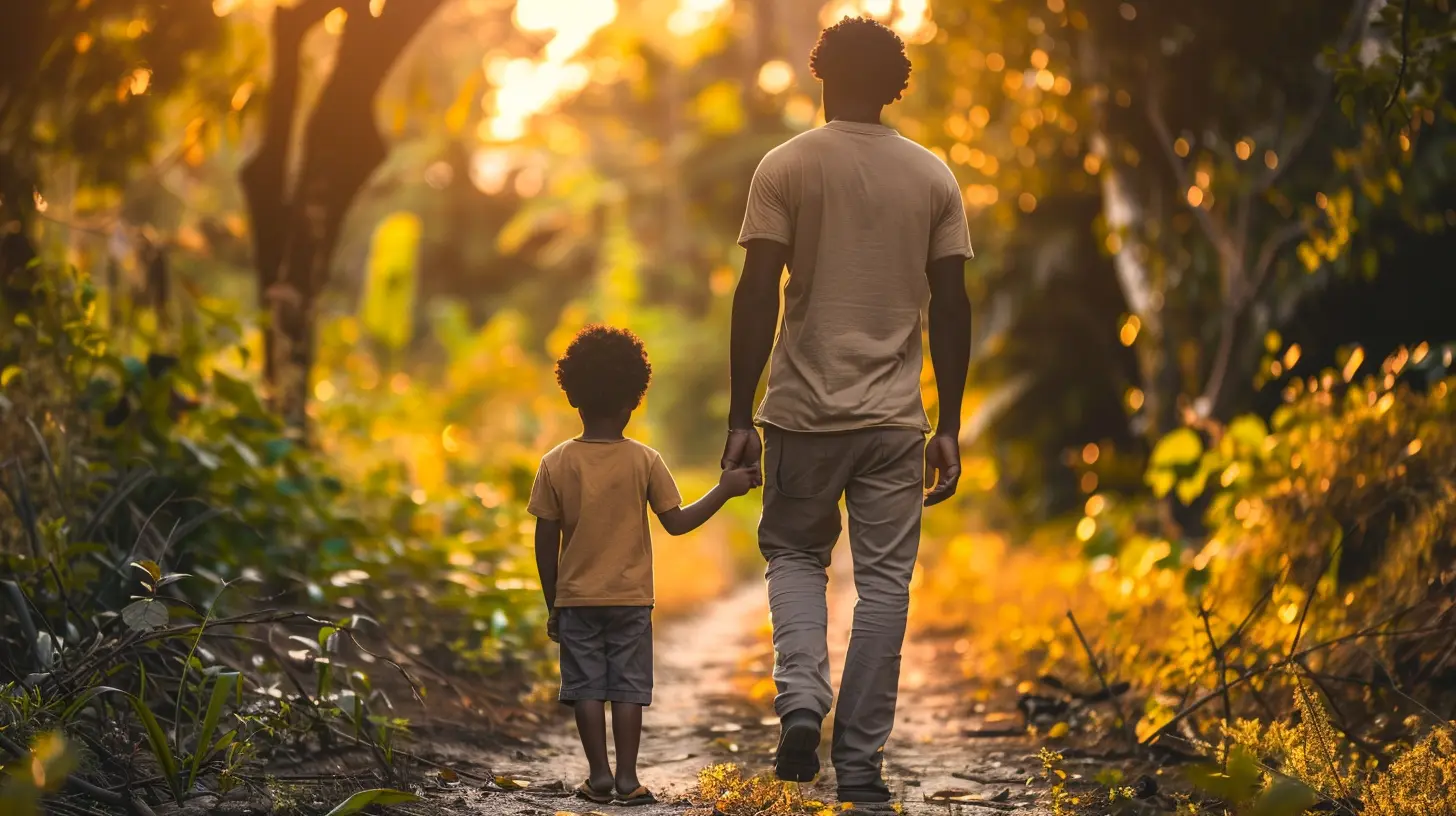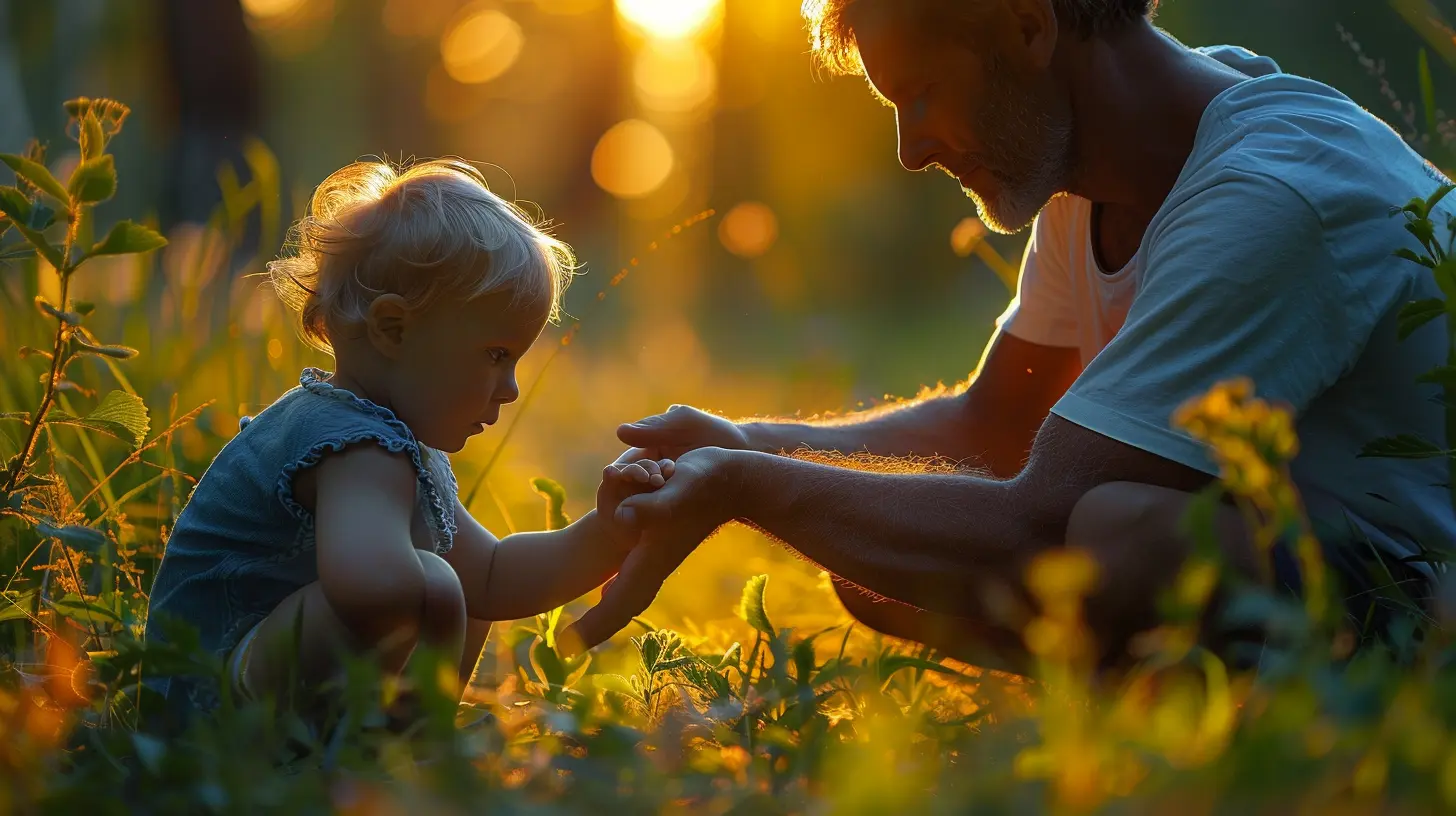Raising Boys Who Understand the Importance of Community
22 July 2025
Raising boys in today’s fast-paced, digital-dominated world is no small feat. There's no manual, no cheat codes, and certainly no one-size-fits-all approach. But if there's one value that can shape boys into men who contribute positively to the world, it’s understanding the importance of community.
Let’s be honest—parenting is a wild ride. And when you're raising boys, especially in a society that often praises rugged individualism over collective responsibility, it’s easy to feel like you’re swimming upstream. But here’s the good news: You’re not alone. And with purpose, patience, and a little bit of strategy, you can raise boys who value community, service, and connection.

Why Community Matters in a Child’s Development
Before we dive into the how-to, let’s talk about the why. Why is it so important for boys to understand community?Community shapes our worldview. It teaches empathy. It gives us a sense of belonging. And for boys, who are often told to be self-reliant and "tough it out," understanding the power of support systems can be transformative.
Think about it: A boy who values community grows up to be a man who steps up when someone needs help, who volunteers, who listens, who stands for fairness. That’s the kind of man the world seriously needs more of.

Start Young: Build the Foundation Early
Like most parenting wins, the earlier you start, the better. When your son is still young, even toddler age, he’s soaking in everything like a sponge. It’s the perfect time to plant seeds of community-mindedness.1. Model What You Want to See
You've probably heard this a million times, but it’s golden: Kids do what you do, not what you say. If you want your son to value community, show him what that looks like. Let him see you checking on a neighbor, helping a friend move, or offering a ride to someone who needs it.You don’t need grand gestures. Even simple acts—like picking up trash during a walk or sharing extra cookies with the mail carrier—send powerful messages. Every little action says, “We’re all in this together.”
2. Talk About Feelings and Empathy
Boys are often taught to shrug off feelings. But understanding emotions—both their own and others’—is key to building community-mindedness.Ask questions like:
- “How did you think your friend felt when that happened?”
- “What would you do if someone was left out?”
- “Have you ever felt lonely or left out?”
Open up those little emotional doors. Let them know that caring is strong, not weak.

Teach Responsibility as a Shared Value
Responsibility doesn’t just mean cleaning your room or doing chores. It also means understanding how your actions affect others—your family, your school, your neighborhood, your planet.3. Get Involved in Local Causes Together
One of the best ways to teach community values is to roll up your sleeves together.Volunteer as a family. Join a local clean-up day, deliver meals to seniors, or help out at the pet shelter. Better yet, ask your son what kind of cause he’d be interested in and encourage him to come up with ideas.
These activities aren’t just good deeds—they’re memory-makers. And they reinforce the idea that giving back isn’t a chore; it’s a privilege.
4. Encourage Group Activities with Purpose
Sure, sports and clubs are great for camaraderie. But try to balance performance-driven activities with those that have a community focus.Scouts, youth church groups, environmental clubs—these are all awesome ways for boys to connect with peers while learning to serve something greater than themselves.

Promote Diversity and Inclusion
Understanding community means understanding that we’re not all the same—and that’s a good thing.5. Normalize Differences from an Early Age
If your son is only exposed to people who look like him, think like him, and live like him, he’s going to have a pretty narrow view of the world.Read books with characters of different backgrounds. Watch shows and movies that highlight different cultures and traditions. Visit museums, attend cultural festivals, and talk about what makes people unique.
It's not about preaching—it’s about exposure. Curiosity leads to understanding, and understanding leads to compassion.
6. Address Biases Head-On
Kids are like radars. They pick up on subtle cues. If they hear negative stereotypes on TV or from adults around them, they internalize that stuff. So it’s on us to take a stand.When your son says something questionable—maybe he repeats something insensitive he heard—don’t just shush it. Talk it through. Ask where he heard it, why he thinks that, and what a kinder perspective might be.
These are tough conversations, but they’re necessary.
Teach Them to Speak Up, Not Just Fit In
There’s a fine line between being community-minded and being a people-pleaser. What we want are boys who aren’t afraid to challenge unfairness, to defend someone being bullied, or to stand up when something’s not right.7. Role-Play Real-Life Scenarios
This might sound goofy but stay with me. Sit down at dinner and throw out a scenario: “What would you do if your friend made fun of another kid in class?” or “What if your group didn’t want to include someone new at school?”Let him think through it. Discuss different outcomes. These small exercises build confidence so he’s ready when real moments arrive.
8. Praise Action, Not Just Achievement
It’s tempting to focus on grades, trophies, and wins. But don’t forget to praise the moments that show character.Bring attention to the times he helped a sibling, comforted a friend, or asked someone to join a group. Make those the big wins in your house.
Use Media as a Teaching Tool
Let’s face it—media is everywhere. Instead of fighting it, why not use it? So many shows, books, and movies have amazing stories about teamwork, community, and doing the right thing.9. Watch and Read Together
Choose stories that highlight kindness, togetherness, and social impact. Afterward, talk about the story. Ask:- “What do you think made that character brave?”
- “Did that remind you of anything in real life?”
- “Would you have done the same thing?”
Don’t underestimate the power of storytelling. Stories stick with kids far longer than lectures.
Create a Culture of Gratitude
It’s impossible to be community-minded without being grateful. Gratitude is that secret sauce that makes people more aware, more giving, more connected.10. Start a Gratitude Ritual
At dinner or bedtime, ask your son to name one thing he’s thankful for that day. Then take it a step further—ask how someone else made his day better and what he did for someone else.Gratitude shifts focus from “me” to “we,” and that’s exactly what community is all about.
Let Them Lead
Lastly, one of the most empowering things you can do is let your son take the lead on community projects. Whether it’s organizing a food drive, planning a fundraiser, or starting a recycling program at school, these experiences are game-changers.11. Support Their Ideas, Even the Small Ones
If your son wants to raise money for animal shelters or send cards to nursing homes, celebrate it. Help him figure out the steps, but let him take ownership. That confidence builds leadership—and community leaders are what we’re aiming for, right?Final Thoughts: The Village Starts at Home
They say it takes a village to raise a child, but I’d argue it starts with raising children who believe in the village. Teaching boys to value community isn’t a side lesson—it’s the foundation. And in a world growing more divided by the day, that foundation matters more than ever.So keep having those talks. Keep modeling kindness. Keep encouraging connection. Because every time you do, you’re not just raising a good boy—you’re raising a great man. One who’ll lift others, stand tall for justice, and remember that the strongest people are the ones who never forget their place in a bigger picture.
And honestly? That’s the kind of legacy we all want to leave behind.
all images in this post were generated using AI tools
Category:
Raising BoysAuthor:

Noah Sawyer
Discussion
rate this article
2 comments
Milena Navarro
This article beautifully highlights the significance of community in raising boys. Encouraging teamwork and empathy from a young age fosters strong relationships and responsible citizens. Great insights shared!
December 23, 2025 at 5:24 PM

Noah Sawyer
Thank you for your thoughtful comment! I'm glad you found the insights on community's role in raising boys impactful.
Odessa Henderson
What a wonderful article! Teaching boys the value of community is like planting seeds for a brighter future. With love, laughter, and a little guidance, we can help them grow into wonderful, compassionate individuals. Keep shining your light—every small effort counts and makes a big difference! 🌟
July 29, 2025 at 4:26 PM

Noah Sawyer
Thank you so much for your kind words! I truly believe that nurturing boys in a community-focused environment lays the foundation for a compassionate future. 🌱


